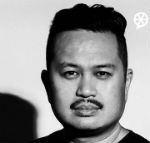SUMMARY
This is AI generated summarization, which may have errors. For context, always refer to the full article.
The following text is from New York-based Next Day Better, a content partner of Rappler’s #BalikBayan
 Be the change.
Be the change.
That’s my three-word life manifesto. It’s a very powerful thought. Fresh out of university, I had a pretty decent job at a consulting firm in the heart of downtown Toronto. The pay was good, I had a shiny silver sports car, and the future looked bright and secure. But I wasn’t happy. I had long dreamed of being an actor and writer and I felt I never gave it a shot. I wasn’t being true to myself and needed to answer to this calling. I needed to make a change.
So I respectfully left my job (fortunately, they offered to keep me on part-time), enrolled in acting classes and embarked on a newfound artist life to live happily ever after.
But paths are hardly ever that clear.
There weren’t many roles out there for young Filipino actors. I knew I’d face that challenge going in, but confidently (oh, youth!) I believed I would blaze a path of opportunities based on my passion and talent.
Kung-fu slippers
It was difficult to show one’s range when most acting roles available to “Asians” or “all ethnicities” are of the one- to two- liner variety, or required you to be fluent in Cantonese (or any other language besides English you grew up speaking). As I danced around onstage playing a Chinese railroad worker (in an opera!) one night, wearing pajamas, kung-fu slippers and a pointy rice paddy hat, I faced another turning point that called for big change.
I wanted to create opportunities for myself and fellow Asian artists who have stayed blurry in the background of popular North American culture for far too long.
As with all the right challenges, a long journey proceeded. I worked with amazing people at Second City (the world’s largest school of improv and sketch comedy) and learned a lot about the craft. I directed my first short film, and was thrilled when it was nominated for Best Canadian Short at Toronto’s ReelWorld Film Festival! I also co-founded an Asian-Canadian theatre company called fu-GEN (which officially is an abbreviation of future generation, but unofficially stands for f*cking geniuses).
I remember the early days (and sleepless nights) when I first started producing theater with my meager savings, worrying that no one would come to our productions. But with luck, we sold out shows for our short run. A community who shared my vision of changing the face of Canadian theatre started to grow, organically.
As the Artistic Producer of fu-GEN, I worked with wonderfully talented artists and friends, creating exciting theatrical work that featured Asian-Canadian artists. With the company’s support and inspiration, I wrote my first play, and it enjoyed successful runs across Canada. Life was good. Then I hit a wall. It was yet another breaking point.
Helping run an independent theater company, advocating for diversity in the Canadian arts community, and finding work as an artist who could pay rent was exhausting. After several years, and with changing views and philosophies surrounding the direction of the company, I needed a break.
Reinvigorated passion
Before I could move on to focus on another long term goal of becoming a filmmaker, I was invited to work with Carlos Bulosan Theatre’s CBT Collective.
Here I would write and perform in People Power, a play centered around the events of EDSA 1, the peaceful revolution that ended a 20-year dictatorship in the Philippines. People Power reinvigorated my passion for theater, and as I delved into Filipino history and culture further, I felt great respect for creating work that had important relevance to our community.
As the CBT Collective struggled through the creation of its next play, In the Shadow of Elephants, I was presented with another challenge. After 30+ years of supporting Filipino art and artists in the community, the Carlos Bulosan Theatre was now experiencing significant financial and operational difficulties that threatened its survival. It was in need of new leadership.
In truth, I didn’t want to be that leader, as I’d just been down a similar road with fu-GEN. I could’ve chosen to complain or do nothing about the situation, but I felt tremendous responsibility towards the play we were creating, that ambitiously aimed to tell the history of Filipino resistance to colonial powers.
The CBT Collective gave me and so many other Filipino-Canadians space to work and grow as artists. If they folded, our community would lose an invaluable resource that nurtured artists and celebrated our voices and stories on stage.
With that in mind, I stepped forward to become CBT’s Artistic Producer. With the help of a generous cast and crew, In the Shadow of Elephants was delivered to great acclaim despite severe budget cuts.
I’m now in the midst of slowly trying to rebuild and strengthen the theater company and the audience/community that surrounds it. And I could use all the help I can get. – Rappler.com
NextDayBetter Toronto takes place at the Centre for Social Innovation Annex (720 Bathurst) from 7 pm -10 pm on Thursday, June 19, 2014 (Friday morning in Manila). For more visit www.nextdaybetter.org
Add a comment
How does this make you feel?
There are no comments yet. Add your comment to start the conversation.